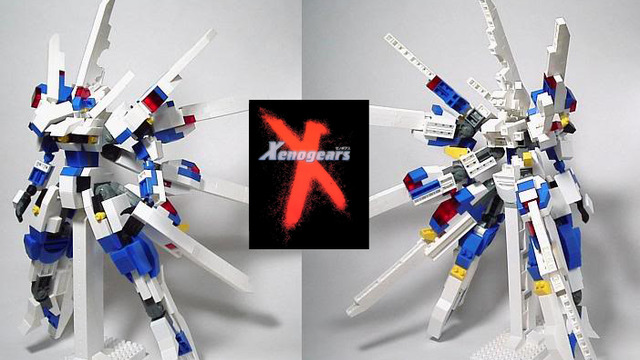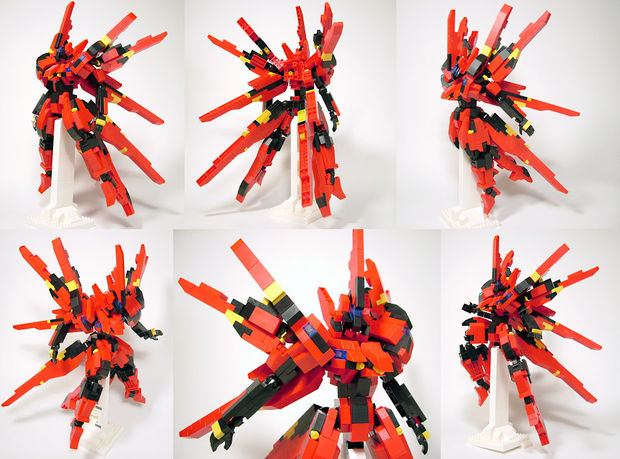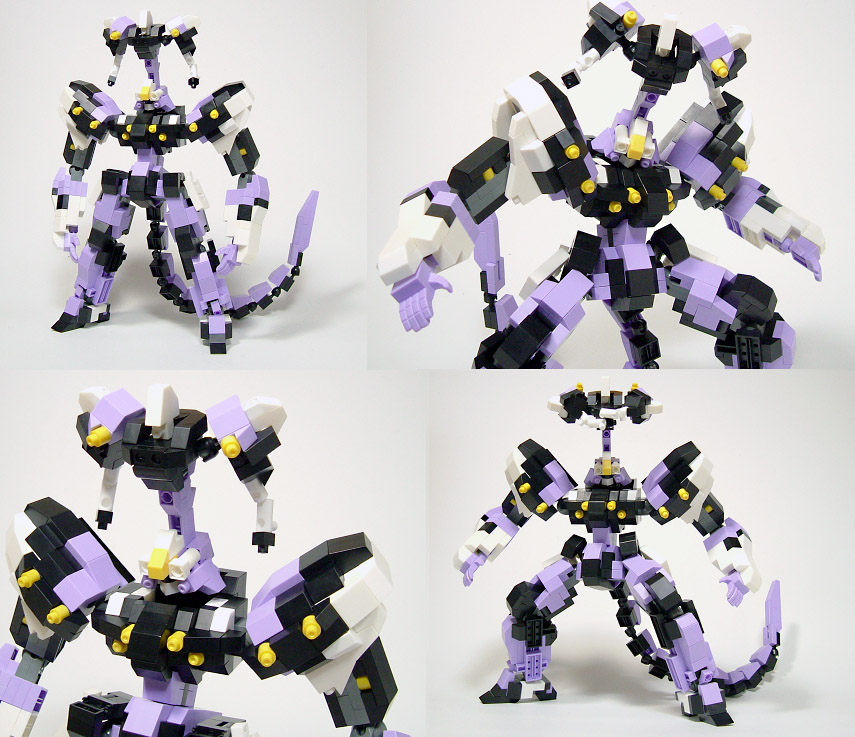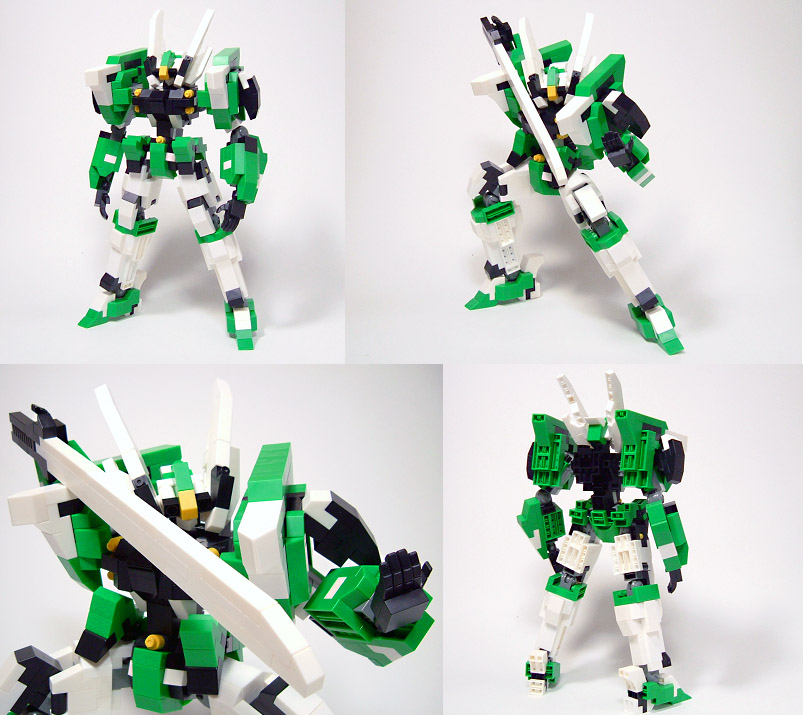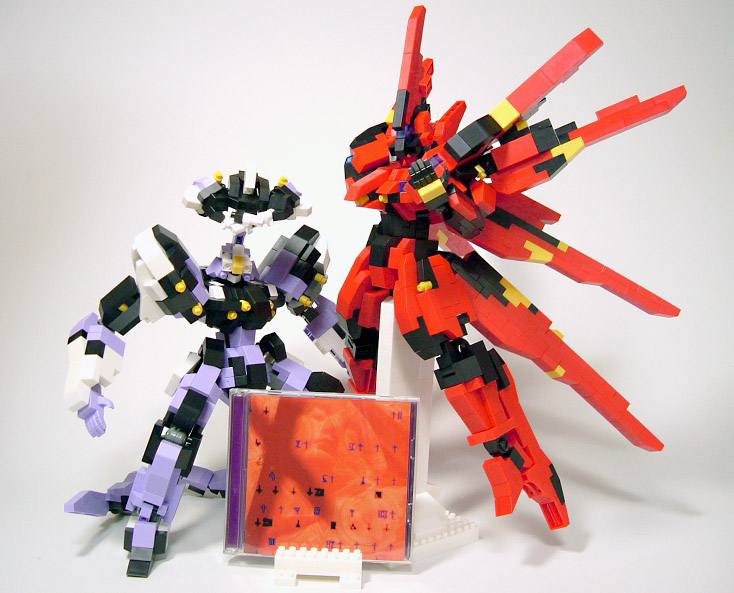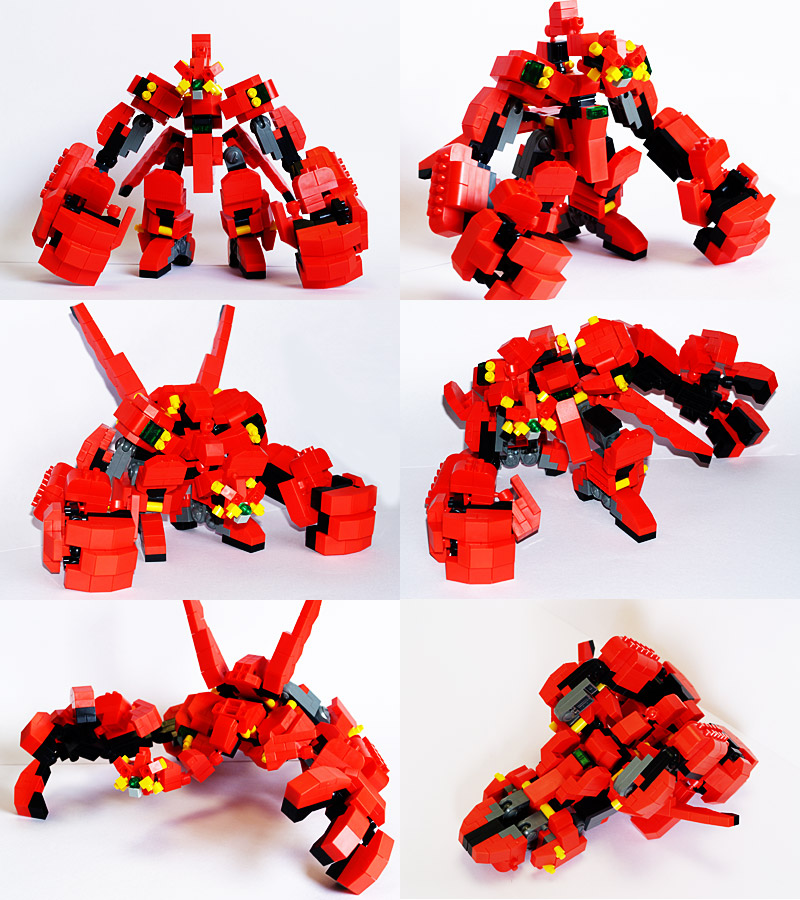Walyou |  |
- XenoGears Is Back, In Lego Form
- Samsung’s Galaxy Gear May Not Need Android Anymore
- Google’s Project Tango Is a Smartphone Aware of Space and Motion
- Facebook Expands Services With WhatsApp Purchase
| XenoGears Is Back, In Lego Form Posted: 21 Feb 2014 08:02 AM PST 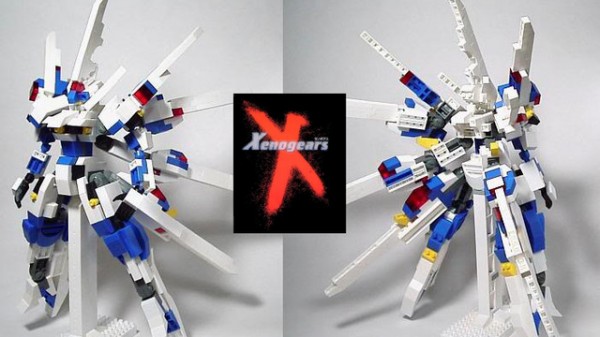 Square-Enix might have given up on Xenogears a long time ago (has it seriously been over 15 years?), but fans won’t. Here’s a tribute to what once was, in Lego form. Some times, fans know best than any company, and this is an example of that. This project was planned by Diego Cabrera, who set it up as a page at Lego Cuusoo in order to make this project a reality. That’s right, with enough votes and interest, you could have your own Lego Weltall, Heimdal or Brigandier… and you’d be lying to yourself if you said you didn’t want them. Keep scrolling down to see the rest of the mechas Cabrera has designed so far! Source: Destructoid Be social! Follow Walyou on Facebook and Twitter, and read more related stories at Gotta Build 'Em All: Pokémon Starters As Mecha and LEGO Mecha Bowser From Zane Houston. |
| Samsung’s Galaxy Gear May Not Need Android Anymore Posted: 21 Feb 2014 06:00 AM PST 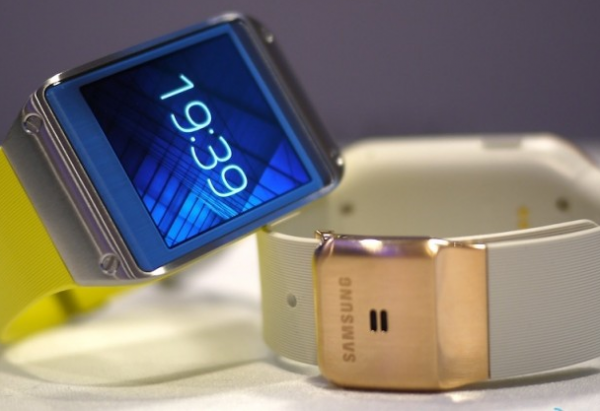 The global mobile operating system market is currently dominated by Android, but that's not stopping Samsung from exploring its options. Android is currently shipping on approximately 80% of mobile devices, so it is generally considered the go-to open source platform, but Samsung has been working on developing another open source platform, Tizen, for several years now. Samsung has been expected to ship its first Tizen smartphone for some time, but we might end up seeing it on a wearable first. Samsung is expected to potentially launch a new Galaxy Gear smartwatch and at least one (maybe two) Galaxy S5 variant(s) during Mobile World Congress at their Samsung Unpacked event. The original Galaxy Gear was launched just a few months ago alongside the Galaxy Note 3, but the second version is on its way and might even be running Tizen. Samsung is well known for its shotgun method of introducing new devices. The first Galaxy gear received mixed reviews and was mostly regarded as a commercialized prototype to help the manufacturer feel out the market. The original Galaxy Gear ran Android, so Samsung is planning on ditching that configuration if the rumor is true. Since Tizen is open source and Linux based, it does make sense to test it out on something like a smartwatch. Tizen is very HTML5 focused, so it's likely Samsung is banking on getting strong developer involvement to bring competition to other manufacturers, specifically Pebble and their newly launched app market. If successful, this will put multiple quality smartwatches on store shelves, going a long way for legitimizing not only the smartwatch market, but also paving the way for additional wearable products down the road. Who knows, if a lot of developers start developing HTML5 apps for a Samsung Galaxy Gear with Tizen, then we can likely expect to see Tizen become much more common, although HTML5 apps will also be able to run on Android, but only in a browser, not on the native platform. Either way, a second Galaxy Gear will definitely represent at least an iterative improvement over its predecessor. A successful launch will be essential in establishing a solid market for similar devices and we could see Pebble, Samsung, Apple, and HTC, each have a high demand smartwatch on shelves by the time we hit another holiday season. Source: Fierce Wireless Be social! Follow Walyou on Facebook and Twitter Read more on Walyou, Everyone Wants The Dash, Samsung Event Officially Announced: is it for the Galaxy S5? |
| Google’s Project Tango Is a Smartphone Aware of Space and Motion Posted: 21 Feb 2014 04:30 AM PST 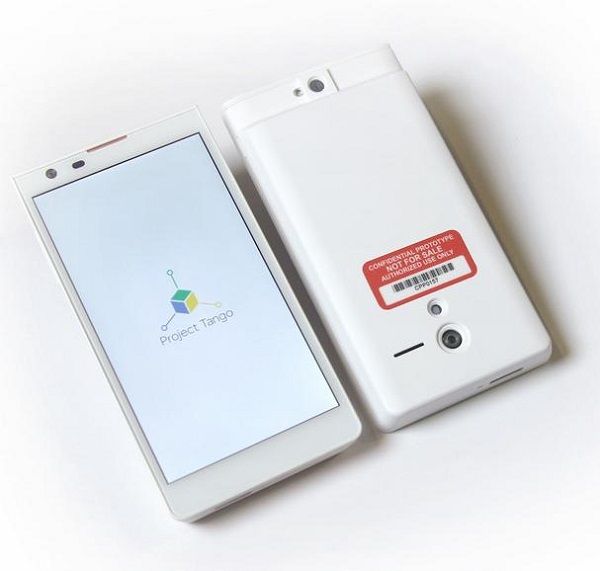 Project Aria wasn’t the only reason why Google insisted to keep Motorola Mobility’s employees when handing over this company to Lenovo. At the time, they were also involved in creating Project Tango, a smartphone capable of 3D mapping the physical world. This revolutionary smartphone has a lot of useful applications, including capturing the dimensions of a house prior to purchasing furniture, mapping buildings to avoid getting lost in them, creating directions to new locations that are more accurate than just street-level. All in all, Project Tango is a great experiment with space and motion, and intends to give mobile devices a human-scale understanding of these notions. It should be noted that unlike Google X projects, which are kept in great secret most of the time, this experimental smartphone is launched with an invitation for software developers to come help Google build it faster.
Johnny Lee, head of the ATAP (Advanced Technology and Projects) team, pointed out that this 3D mapping smartphone is the result of a collective effort: “Over the past year, our team has been working with universities, research labs, and industrial partners spanning nine countries around the world to harvest research from the last decade of work in robotics and computer vision, concentrating that technology into a unique mobile phone. Now, we’re ready to put early prototypes into the hands of developers that can imagine the possibilities and help bring those ideas into reality.” Project Tango is a 5-inch smartphone that packs custom hardware and software needed for tracking the full 3D motion of the device. More precisely, the prototype phone comes with a 4 MP camera, a motion tracking camera, an integrated depth sensor and two computer vision processors. The entire assemble can easily map the surrounding environment for future use in various contexts. As the sensors collect 250,000 3D measurements every second, accuracy is the least of the problems for this prototype. At the moment, there are only 200 prototype dev kits that Google is looking to share with professional developers. The future collaborators will make experiments either in indoor navigation or single and multiplayer games that use the surrounding environment. By March 14th, 2014, Google intends to get rid of all the dev kits, so if you happen to have an idea about how the 3D mapping smartphone could be used, don’t hesitate to fill in the form available on the Project Tango page.
Google wanted to stress that while this smartphone runs Android, the 3D mapping technology and the software used for collecting data from the sensors is not yet part of this mobile OS, and it may take a while till it becomes so. Be social! Follow Walyou on Facebook and Twitter, and read more related stories about the Clover concept phone and the Google-developed Ingress game that helps the search giant take over reality. |
| Facebook Expands Services With WhatsApp Purchase Posted: 20 Feb 2014 07:27 PM PST 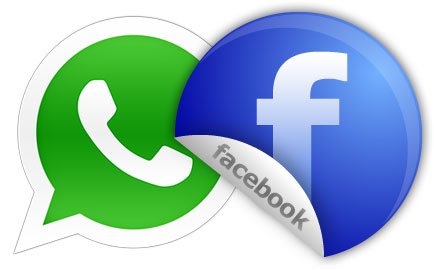 Facebook’s future path has been a topic of uncertainty for many since its inception, but that doesn’t stop them from making some big purchases. 2014 has been a big year for acquisitions. Google kicked the year off with its acquisition of Nest, followed shortly by Google's sale of Motorola to Lenovo, and now it's announced that Facebook plans to buy WhatsApp in a deal that totals out around $19 billion, or 19 Instagrams. WhatsApp is a messaging service that many people use in lieu of their carrier's text messaging service, since WhatsApp sends messages over the data network, which avoids any carrier charges and allows users to text internationally without the use of an international texting plan, very similar to e-mail, but through a text messaging interface. The company reports it has 320 million active daily users, so it only makes sense that Facebook would want to bring them into the fold. Facebook isn't the only one interested in WhatsApp, though. It's rumored that Google offered $10 billion to the messaging service, which wisely held out for double from Facebook. This acquisition will go a long way to enhancing Facebook’s robust communications services already in place. Pending a couple features such as cloud storage and a more robust calendar, Facebook could begin going toe to toe with Google, Apple, and Microsoft in cloud ecosystems. Facebook still lacks proper hardware support, which its competitors have either through in-house manufacturing, or through OEM parnerships. The Facebook Home imbued HTC First is largely considered a flop despite a relatively warm critical reception, although much of the positivity regarding the phone should be attributed to HTC. It was the hardware, not so much the software that people appreciated with that phone. Facebook Home is a service that is primed to be layered over Android phones, though, so we may be able to anticipate some more Facebook mobile news cropping up in the next few years with more Facebook centric devices. Source: Business Insider Be social! Follow Walyou on Facebook and Twitter Read more on Walyou, New Samsung Deal May Rock Blackberry's Boat, New Google Services Certification to Reduce Fragmentation |
| You are subscribed to email updates from Walyou To stop receiving these emails, you may unsubscribe now. | Email delivery powered by Google |
| Google Inc., 20 West Kinzie, Chicago IL USA 60610 | |
